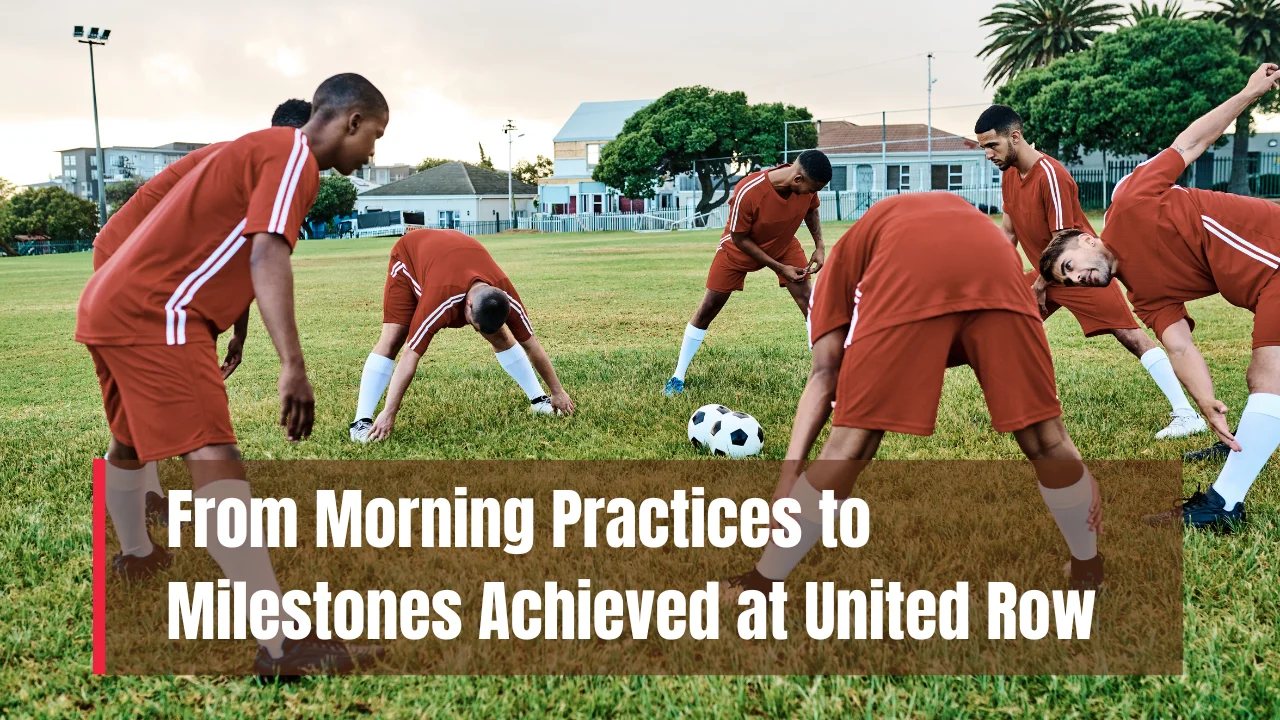United Row: United Row is shaping the next generation of leaders in ways that extend far beyond the water. For many young people, coaching roles are their first real taste of leadership responsibility. They are no longer just athletes focused on their own performance but mentors guiding a team toward progress. These experiences are teaching lessons that textbooks cannot, offering practical skills that prepare them for challenges in both sports and life.
This article explores the unique lessons young leaders gain from stepping into coaching roles at United Row. From communication and team management to problem-solving and resilience, these experiences build skills that remain valuable in classrooms, careers, and communities. Readers will discover how coaching acts as a platform for personal development and why these roles matter for the growth of future leaders.
What Young Leaders Are Learning from Coaching Roles at United Row
Coaching at United Row is more than teaching rowing techniques. It is about cultivating leadership qualities that build character and confidence. Young leaders learn how to communicate clearly, manage teams with patience, and guide individuals of different abilities toward a shared goal. The role pushes them to develop emotional intelligence, strategic thinking, and accountability. These skills create a foundation not only for better coaching but also for long-term leadership outside of sports. Coaching provides hands-on experience that shapes maturity, discipline, and resilience—qualities essential for success in every aspect of life.
Key Learning Areas for Young Coaching Leaders
Taking on a coaching role at United Row exposes young leaders to growth opportunities they might not encounter elsewhere. These are some of the main areas where they gain invaluable insights.
1. Building Communication & Feedback Skills
Clear communication is one of the most powerful skills young leaders develop. Coaching requires them to explain techniques in ways that fit the learning style of each athlete. They practice giving constructive feedback that motivates rather than discourages. Listening becomes just as important as speaking, as they need to understand rowers’ concerns, struggles, and perspectives. This exchange builds stronger trust and helps create a supportive environment.
2. Managing & Leading Teams
Coaching involves organizing practices, balancing team needs, and managing time effectively. Young leaders quickly realize the importance of planning sessions, setting achievable goals, and keeping the group on track. They learn how to distribute responsibilities and build unity, discovering that true leadership is about enabling others to succeed rather than controlling every detail. This experience mirrors the teamwork required in workplaces and communities.
3. Developing Empathy & Emotional Intelligence
Every athlete is different—some respond to firm direction, while others need encouragement and reassurance. Coaching teaches young leaders to adapt to these differences with patience and empathy. They gain the ability to read emotions, recognize struggles, and adjust their approach. This emotional intelligence not only makes them better coaches but also strengthens their ability to connect with people in other areas of life.
4. Strategic Thinking & Problem Solving
Unpredictable challenges are common in rowing—weather changes, schedule conflicts, or unexpected injuries. Coaching pushes young leaders to think on their feet and develop quick solutions. They learn how to adjust strategies while keeping the bigger picture in mind. These problem-solving skills extend well beyond sports, equipping them to handle obstacles in academics, careers, and personal situations with confidence.
5. Responsibility, Accountability & Role Modelling
Perhaps the most important lesson is responsibility. Coaches must arrive prepared, maintain safety standards, and set an example for others. Their actions and attitudes directly influence the athletes they lead. By stepping into this role, young leaders understand that accountability is not about perfection but about consistency and integrity. They learn that others are watching, and their behavior matters.
United We Row Programs That Support These Learning Paths
United Row provides structured programs that guide young coaches through these leadership journeys. Two standout initiatives include:
- Mentorship Programs – Young coaches are paired with experienced mentors who provide feedback, share best practices, and offer support when challenges arise. This ensures they have guidance while developing their own style.
- Coaching Education Resources – Training programs prepare young leaders for advanced coaching responsibilities, covering not just technical instruction but also leadership skills, safety protocols, and team culture.
These initiatives give coaches a safe environment to grow while still being challenged to step into leadership.
Two Crucial Insights Young Leaders Gain Specifically
Among the many lessons, two stand out as particularly impactful for young coaches:
- Learning to Adapt to Individual Needs
Early on, coaches discover that each athlete learns differently. What works for one person may not work for another. Adapting strategies to suit different personalities and abilities teaches flexibility and inclusivity. - Balancing Performance with Well-Being
Coaches realize that pushing athletes to perform is important, but protecting physical and mental health is equally vital. They learn the value of rest, encouragement, and balance, creating a more holistic approach to leadership.
Challenges Young Leaders Face & How They Learn Through Them
Stepping into leadership roles is rewarding but also filled with challenges that push young coaches to grow.
- Imposter Syndrome: Many feel unsure about their ability to lead, but over time they build confidence by seeking feedback and seeing positive results.
- Difficult Conversations: Addressing lateness, poor effort, or conflict requires clear communication and fairness. These moments teach diplomacy and courage.
- Shifting Peer Dynamics: Coaching peers or friends can feel awkward at first, but learning to set boundaries strengthens professionalism.
- Time Management: Balancing training, coaching, and personal commitments teaches young leaders how to prioritize effectively.
These challenges, while difficult, provide some of the most lasting lessons in leadership.
Why These Lessons Matter Beyond United Row
The skills gained from coaching extend far beyond rowing. Young leaders take communication, empathy, and problem-solving into their education, workplaces, and community roles. They become more confident decision-makers, adaptable thinkers, and reliable teammates. Coaching also instills resilience, showing them how to handle setbacks with determination. By learning to guide others, they prepare themselves to take on leadership responsibilities in every stage of life.
FAQs
1. What qualities do young leaders need before starting as coaches at United Row?
They need a basic understanding of rowing, a willingness to learn, and a genuine interest in supporting others. Coaching education programs provide further guidance.
2. How do mentors help young coaches in United Row?
Mentors provide feedback, share strategies, and act as role models. Their support helps new coaches build confidence and avoid common mistakes.
3. Can young coaches balance being both athletes and leaders?
Yes, but it requires setting boundaries. Learning to separate personal goals from leadership responsibilities is part of their growth.
4. What are the biggest challenges young coaches face?
Common challenges include self-doubt, handling conflicts, and balancing time. Overcoming these makes them stronger leaders.
5. How do coaching lessons carry into everyday life?
The communication, empathy, and accountability learned in coaching roles apply to careers, academics, and relationships, making young leaders more prepared for future success.
Final Thought
Coaching roles at United Row are proving grounds for leadership. Young people discover how to communicate, manage, adapt, and inspire, gaining lessons that last far beyond the sport. These experiences shape them into resilient leaders ready to take on challenges in every aspect of life. If you’ve ever thought about coaching or mentoring, consider the opportunity—it may teach you just as much as it teaches those you guide. Share your own experiences or thoughts in the comments, and explore more about leadership growth opportunities that could inspire your journey.












